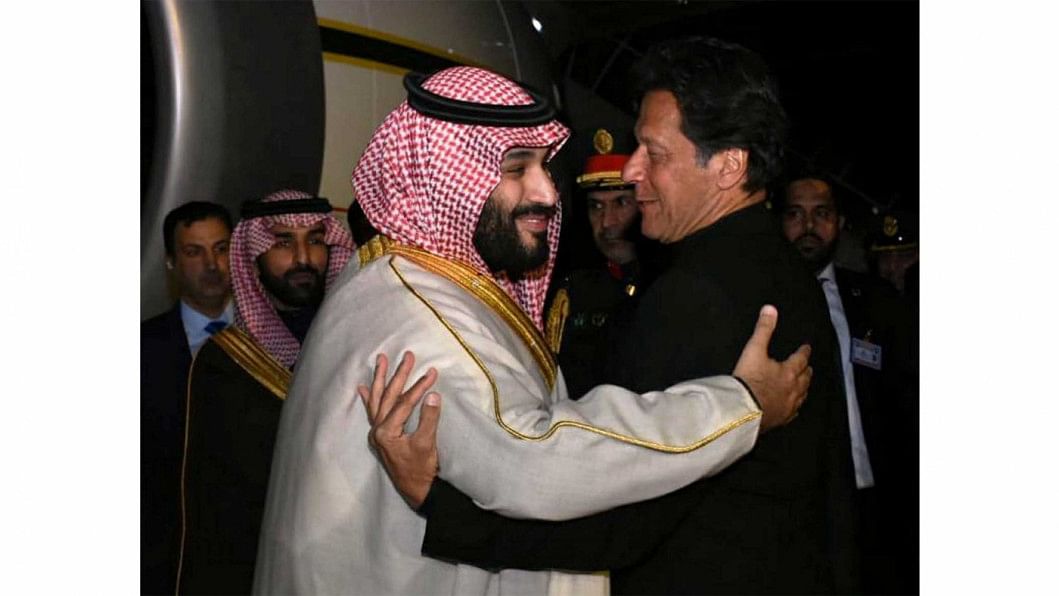Saudi, Emirati religious moderation yet to inspire others

Saudi Arabia and the United Arab Emirates (UAE) have drawn praise for social reforms that have domestically reduced the role of religion in public life. Yet, their efforts to position their countries as the Muslim world's beacons of an autocratic notion of moderate Islam have done little to encourage moderation beyond their borders.
The geographic limits of Saudi and Emirati moderation are evident in the housing projects of France, the Rohingya refugee camp in Bangladesh's Cox Bazar, and in Pakistan. While the rise of Islamophobia in recent years due to indiscriminate and senseless acts of violence, prejudice against migration, and right-wing xenophobic agitation is beyond doubt, equally true is that neither Saudi Arabia nor the UAE can claim total innocence.
"At the risk of simplifying a bit, one could argue that from the mid-1990s onward, the rise of Islamist violence in France that culminated with the terror wave of 2015-2016 was essentially a Salafi undertaking," said Marc Weitzmann. Weitzmann, who blames the Muslim Brotherhood and its Middle Eastern backers alongside the Saudis for France's problem, appeared to implicitly acknowledge that his assessment did not also hold French discriminatory policies and societal attitudes responsible.
The combination of Saudi funding, Islamist agitation, and French policy created a brew in an environment of increasing anti-Muslim and anti-migrant sentiment that allowed the UAE to align its obsessive campaign against political Islam with the domestic and geopolitical aspirations of French President Emmanuel Macron. With an election scheduled for April, Macron has accused the Brotherhood and Salafists of Islamist "separatism" and "supremacy" by allegedly seeking to introduce an Islamic legal code that would supersede French law. The government has in the past year passed legislation that is widely seen as targeting Muslims and has cracked down on various Muslim civil society organisations.
Similarly, militants of the Arakan Rohingya Salvation Army (ARSA) alongside criminal gangs are gaining ground in Bangladesh's Cox's Bazar, home to about a million refugees from Myanmar who have nothing to look forward to. Like their French brethren, little short of practical life-improving solutions will stop Rohingya refugees from finding solace in religious militancy and ultra-conservatism.
To be sure, Saudi Arabia and the UAE have donated millions of dollars for humanitarian aid to the Rohingya. But humanitarian aid alone is unlikely to stop the wound in Cox's Bazar from festering. Yet, Myanmar does not rank among the top recipients of aid in a just published report on Saudi humanitarian and development aid.
Saudi Arabia ranks among the world's top five donors with 60 percent of the funds or USD 40 billion allocated to development in the last 46 years. In contrast to Myanmar, Pakistan ranks among the top five recipients of Saudi largesse in terms of both humanitarian and development aid.
Pakistani Prime Minister Imran Khan emphasises the role of Islam in education and the clamping down on alleged blasphemy, while Saudi Arabia and the UAE have sought to reduce the role religion plays in national identity and public life.
After introducing a singular national education curriculum that substantially increases religious content and creating a body to monitor the curriculum and watch for blasphemous content on social media, Khan last week identified corruption and explicit sexual content on the internet as the main threats facing Pakistani and Muslim youth.
In doing so, he ignored the real issues confronting youth in multiple Muslim-majority countries: a lack of quality education that prepares students for a 21st century labour market, the absence of an intellectual and social environment that truly encourages creative and independent thinking, and a dearth of professional prospects for many young Pakistanis. Khan has long made corruption a signature issue, but recently leaked documents suggest that members of his cabinet and their families as well as some of his financial backers and military officers have parked millions of dollars in secretly owned offshore companies.
In an online meeting last week with Islamic scholars, Khan, focusing on Islam's earliest years, appeared to argue that securing societal ethics and morals were a prerequisite for the fight against corruption.
Neither Saudi Arabia nor the UAE embrace fundamental freedoms, including the freedom of expression. On the contrary, their human rights records are badly tarnished. Nonetheless, demonstrably nudging Pakistan to embrace educational reform and counter law-of-the jungle social militancy, even if only in line with an autocratic definition of religious moderation and helping provide troubled communities with prospects beyond mere survival, would constitute a step forward. Potentially, it would enhance the two Gulf states' competing efforts to be icons of a restrictive form of moderation and leadership of the Muslim world.
Dr James M Dorsey is an award-winning journalist and a scholar, and a senior fellow at the National University of Singapore's Middle East Institute.

 For all latest news, follow The Daily Star's Google News channel.
For all latest news, follow The Daily Star's Google News channel. 



Comments